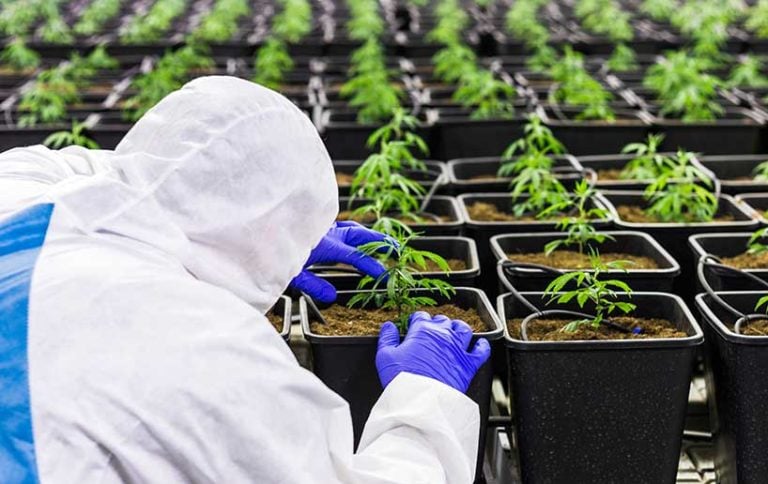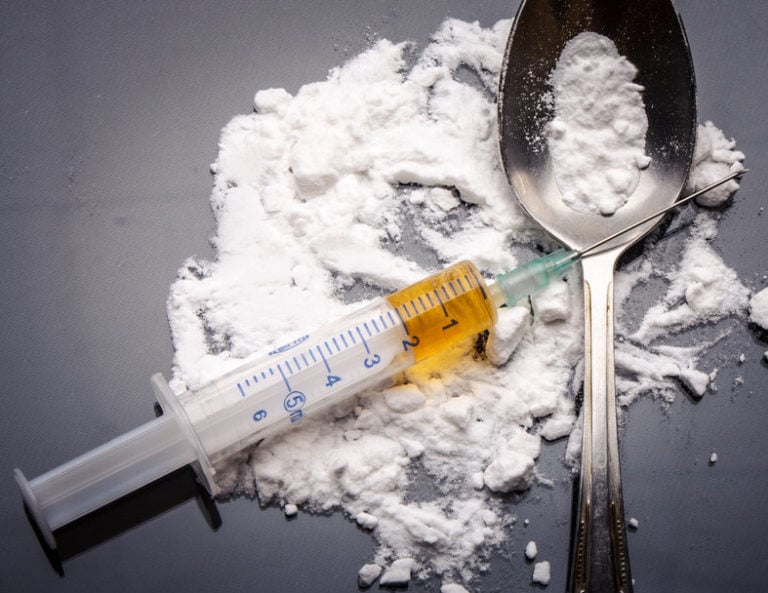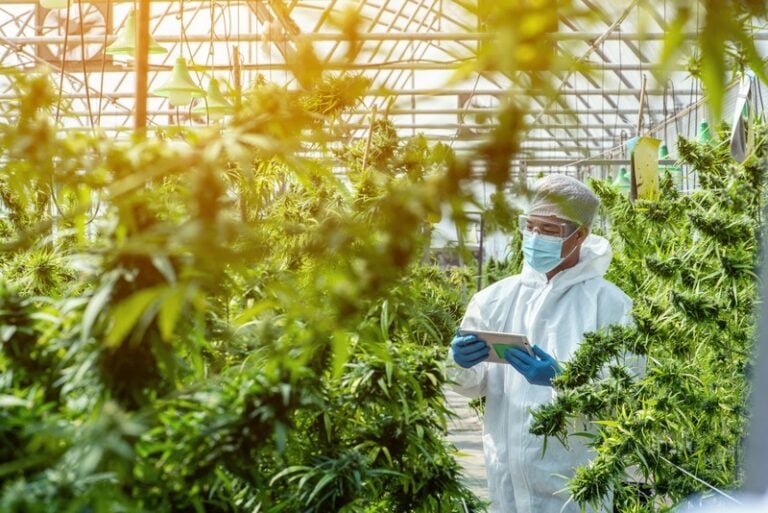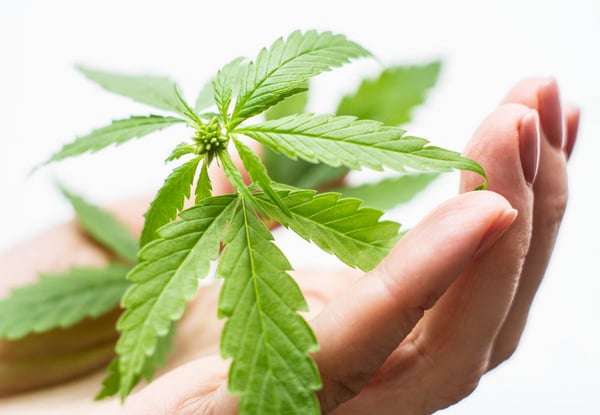Bees on Cannabis & Hemp Crops: Good or bad…and do bees get high?
Cannabis plants and insect (Honey bees and hemp)
If you’re cultivating hemp crops for commercial use (medicines, textiles, or food products), you already know that honey bees buzzing around your industrial hemp crops, during flowering periods (male or female plants), is not necessarily a BAD sign – and certainly not a pollination risk.
- Hemp plants are wind-populated (not pollinated by insects, such as bees).
- So chances are the honey bees are simply collecting pollen (from male plants only).
- But seeing honey bees on your hemp plants may not necessarily be a GOOD sign, either – in terms of crop health.
- Scientists & Botanists speculate that honeybees, if converging on a hemp or cannabis crop, could indicate an Aphid infestation.
And NO – in response to frequently asked questions about bees and cannabis crops – honey bees are unlikely to “get high” (or experience altered neurophysiology), according to the experts on Apis mellifera.
In addition, it’s unlikely that you will get high from hemp honey, as hemp plants by regulation have very low levels of THC. Besides, it’s the nectar that is used in honey production, not pollen!
(It is believed insects may have lost such receptors, if they had them at all, as they evolved alongside cannabis and hemp plants with psychoactive properties that changed over time).
Click here for online courses for cultivation of medicinal cannabis crops including integrated pest management training courses.
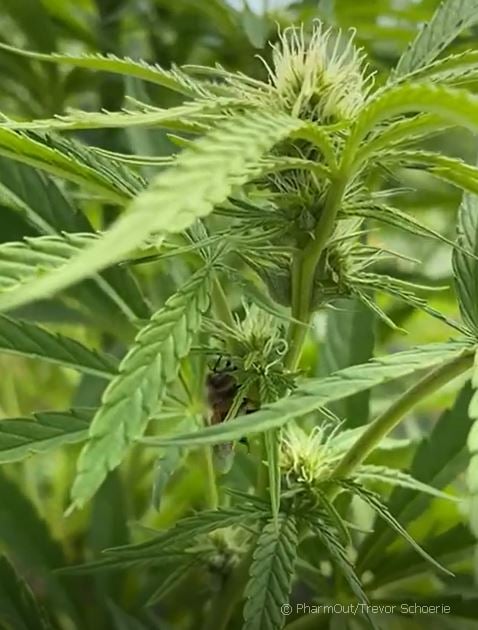
Hemp science
Research on honey bees & cannabis or hemp crops
Videos showing honey bees converging on cannabis or hemp crops may generate a lot of interest. Yet honey bees feasting on these crops is ‘not that common’.
- Even so, these videos have sparked a growing interest in the reasons honey bees are, at times, attracted to hemp plants (flowers).
- A number of growers are curious to know whether bees are good, bad, or indifferent, in terms of visiting their crops — and why.
So let’s explore some frequently asked questions (FAQs) about bees, cannabis plants, and hemp plants (commercial crops), and summarise the current scientific thinking.
You can also take a look at our Medicinal Cannabis Cultivation Training Courses and FOLLOW the hemp science and cultivation experts (listed below).
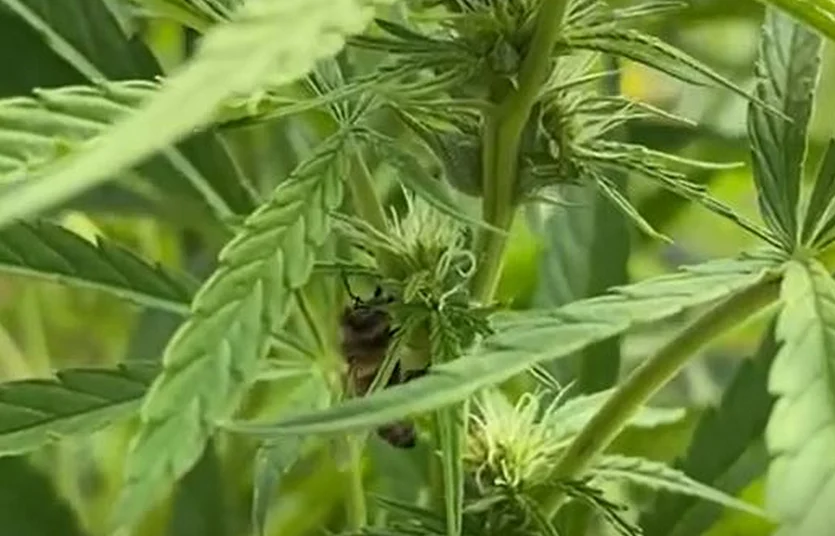
Hemp science and honey bees
Frequently asked questions about honey bees and hemp crops
FAQ: Do honey bees get high from hemp or cannabis plants?
This question often emerges from curiosity versus a purely scientific interest. But researchers have looked into bees, cannabis, and the potential effects of THC.
A similar curiosity is whether or not honey, produced by bees who feasted on hemp or cannabis flowers, will contain psychoactive properties, leading to a sudden rush on honey-based food products.
The answer to these questions, as mentioned, is NO.
- Honeybees don’t get high (or at least, scientists do not believe bees are attracted to hemp or cannabis plants for purely recreational purposes).
- And as far as we know, the honey that a bee produces, after feasting on a hemp or cannabis flower, won’t get humans intoxicated, either.
But researchers are yet to conclusively determine if ‘hemp honey’ might contain stronger antimicrobial properties than typical honey generally contains.
The medicinal properties of ‘hemp honey’, if this becomes a distinguishable variety, compared to non-hemp honey, would certainly be worth exploring. (Click here for the Cochrane Review on honey and wound/burn healing treatments).
FAQ: Why do scientists believe cannabis doesn’t affect honey bees the same as humans?
- Scientific reseach into honey bees, hemp, and cannabis crops, remains sparse.
- Given these crops remain highly regulated, and that legal cultivation is quite a recent occurence (requiring the right ODC licences for industrial hemp and cannabis crops), there’s a lot of information scientists are yet to discover.
Several scientists have affirmed, however, that insects such as bees “lack the receptors” needed to enable ‘intoxication’ from the plant’s hemp and cannabis flowers.
“It is thought that the CB (cannabinoid) receptor was lost in insects over the course of evolution”. (Source: J. McPartland, V. DiMarzo, et al., “Cannabinoid receptors are absent in insects”, accessed 3 March 2022).
McPartland and colleagues highlighted that “the CB receptor appears to be the only known neuroreceptor that is present in mammals, and absent in insects. Because of its documented absence, we can reliably say that bees are unable to experience cannabis in the same way humans do.” (McPartland, DiMarzo, et al.)
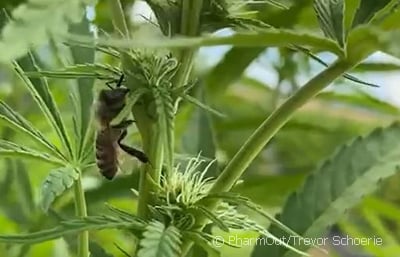
FAQ: How often will you find bees on your hemp crops?
So why DO honey bees visit hemp and cannabis crops from time to time? And how frequently does this occur?
- Bees on hemp crops are not uncommon, but bees are not necessarily a frequent visitor.
- Bees on crops can vary from region to region, season to season, and hemp plant growth phase (hemp crop cultivation stage).
You might see bees a few times a year, depending on your location – or more frequently – or not at all!
We asked a Cannabis Cultivation Industry expert: “How often do you find bees on your client’s hemp or cannabis crops?”
And it turns out…not that often!
According to medicinal cannabis cultivation consultant and beekeeper, Trevor Schoerie:
“My bees typically don’t go near cannabis outdoor crops, because all the cannabis flowers should be females, i.e. there is no pollen. Obviously, if you see bees, you should suspect that you have hermaphrodites or males plants. Both could be disastrous.” (Trevor Schoerie)
Did you know we offer 13 medicinal cannabis education course topics, all available online?
- Botanists speculate that the likely reason bees are attracted to hemp or cannabis crops may be related to finding ‘a food of last resource’.
- In his 2012 article in the IOSR Journal of Pharmacy and Biological Sciences (IOSRJPBS), Dr. J. S. Dalio speculated that: “In India, [where observations of bees on cannabis plants was observed], bees…turned to cannabis plants as a source of protein, but only visited male plants during times of dehiscence when the male plant’s reproductive organs released pollen [and] bees were only interested in that pollen during a pollen dearth.” Dalio, J.S., 2012.
Scientists admit it is also possible that honey bees are gaining unknown benefits from certain cannabis or hemp flowers (plant species). But we are just beginning to collect evidence on the medicinal benefits of these crops for humans…yet alone, for bee health!
FAQ: What does the research say about why honey bees are NOT commonly attracted to cannabis or hemp crops?
Bees are responsible for the pollination of 70% of the world’s crops – but not hemp or cannabis, as noted previously.
- Many Scientists and Botanists believe the reason bees are only occasionally seen on hemp or cannabis plants is that they are, for many reasons, more attracted to other flowering plants – the kind that offer nectar, not just pollen.
- Simply put, bees find cannabis plants rather ‘unappealling’ in terms of what they offer
- Not only do hemp and cannabis plants lack nectar, they lack ‘bee-attracting scents’, and sport ‘less appealing colour schemes’ than the flowers they prefer to feast upon. (H.G.)
- So it seems bees may only seek out cannabis or hemp flowers when their normal sources of nectar have been disrupted, either by humans (think urban sprawl developments) or by other changes in the environment (droughts, fires, and floods).
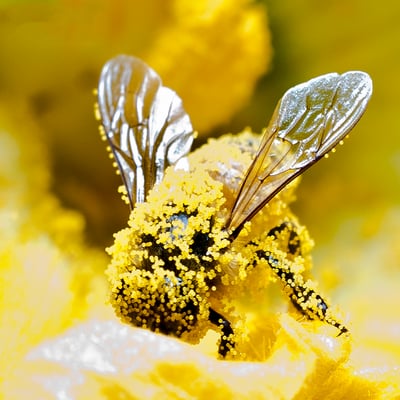
It is speculated, then, that during times of low food source availability (low nectar availability), honey bees may descend on nearby hemp or cannabis crops – even so, it’s still worth checking for aphid infestations or other plant health issues. (Source: Heather Grab, Senior Lecturer in Hemp Science, Cornell University)
FAQ: Do bees like the pungent scent of hemp or cannabis crops?
- Not likely, according to hemp crop scientists (and beekeepers).
- The scent of these crops (and pollen) may be more pungent, and bitter, than sweet!
- Otherwise, we’d likely to see bees feasting on hemp & cannabis flowers, far more frequently than currently seems to be the case.
According to another Hemp science researcher and beekeeper:
“Bees have an exquisite olfactory sense that they use to detect pheromones of other bees and to find nectar. They are also attracted to colours, and these two ‘appeals to the senses’ are like neon billboards for finding food and mating opportunities… Cannabis does not have these attributes.” (Source: Sharon Schmidt).
And in terms of psychoactive properties being the attraction?
“…bees have no neuroreceptors that would allow them to apprehend the psychoactive elements present in cannabis,” states Schmidt.
FAQ: What about photographs of female hemp plants covered in honey bees?
Hemp scientist, Dr. Heather Grab (Senior Lecturer at Cornell University’s College of Agriculture and Life Sciences in the School of Integrated Plant Science), notes that:
- It is extremely rare to sees honey bees swarming on (female) hemp plants or other cannabis plants; confirming that bees are mostly attracted to these plants during periods of time (or in regions) where other flowering plants are sparse
- The available scientific data is yet to reveal whether honey bees will only swarm on hemp or cannabis crops in situations of ‘honeydew’ (Aphid infestations), OR
- If they’re potentially drawn to these flowers for other reason; but this is worth further investigation
Are the glandular trichomes of hemp or cannabis of unknown value to the bees?
Dr Grab believes further research would be worthwhile to investigate if the plant’s glandular trichomes are:
- Being used by bees to ‘build something’ (making use of the plants’ antimicrobial properties); and/or
- Being used to seal up gaps in the hive (propolis)
Listen to Hemp science expert Heather Grab’s PODCAST interview on bees and hemp plants.
FAQ: Where can I get more data on honey bees, hemp crops, and cannabis crop cultivation?
Click here for the Medicinal Cannabis Crop Integrated Pest Management training course and other Cannabis Cultivation Employee Training courses.
We offer 13 medicinal cannabis industry education course topics, all available online.
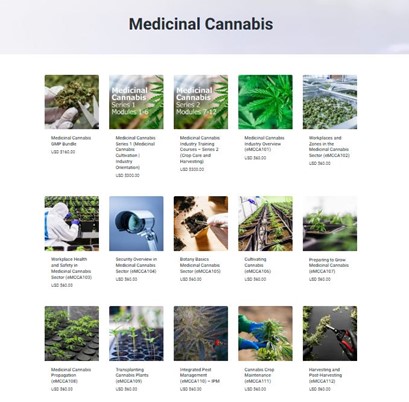
For links to other scientific information on honey bees, hemp and cannabis plants, visit the links at the end of this article.
—-
Click here for the course on Integrated Pest Management and other Cannabis Cultivation employee training courses
—–
In summary, when it comes to seeing honey bees on cannabis or hemp crops:
- Bees are not necessarily a bad sign in relation to crop health, and occasional bee visits can be expected if nectar-bearing flowers are sparse
- But if you have bees on your hemp crop or medicinal cannabis crop, DO be sure to check for other pest infestations – in particular, look for signs of an aphid infestation (honeydew)
- Also, it is possible that some of the phytochemicals and other compounds found in hemp or cannabis offer nutritional value to honey bees that is not yet fully understood:
“The nutritive value of hemp and the diversity of phytochemicals and antibacterial compounds produced by the plant, may also provide further benefits to the overall health of bees”. Source: Hemp Harvests
Further research is also needed to determine if ‘hemp honey’ (if it is at all different from other honey) might contain added antimicrobial benefits; OR if the bees have other reasons for occasional feasting on your hemp crop flowers.
And if you’re asked, by a friend, if the bee they saw on your cannabis plant is attracted to the flowers for their pharmaceutical or intoxicating properties — “do bees get high?”
- Bees do not have the same neurological systems as humans, so they do not get ‘high’ on hemp or cannabis flower pollen
- They cannot make honey with psychoactive properties (and prefer nectar over pollen)
LINKS to hemp industry experts
Review the recommended reading links below, and click here for the Medicinal Cannabis Crop Integrated Pest Management training course and other Cannabis Cultivation Employee Training courses (we offer 13 medicinal cannabis education course topics, all available online).
Be sure to follow the following researchers, crop experts, and/or beekeepers with an interest in this area of botany and hemp research:
References and recommended reading
Article published on “BEE CULTURE”: https://www.beeculture.com/bees-and-cannabis/
Key points and excerpts from Sharon Schmidt’s “Bee Culture” article, accessed online on 8 March 2022
“It appears that trichomes have evolved for the purpose of making a plant less tasty to animals and insects (Anonymous, 2016), making the idea that bees are feeding from trichomes less plausible and more likely that they might be collecting resin from them…
Presently….the [relationships] between bees and cannabis are not yet verified…Much may yet be discovered, but some hypotheses are more likely true than others, [such as]:
- That another naturally occurring source of interest for bees called “honeydew” is often the object of their interest.
- Honeydew is simply the waste product of scale or other sucking insects which cannabis is likely to host.
- These tiny insects probably concentrate their feeding (and excretion) at the tender surfaces of new plant growth and produce tasty waste products that bees might feed on.
- The possibility that bees might be collecting resins for purposes of making propolis (a sticky bee product used by them to sanitize, reinforce and weatherproof the hive)…
- That [the bees] demonstrating activity on cannabis plants might even be seeking moisture from irrigation (Dr Caron)
- The literature suggests that they do not prefer cannabis pollen but will resort to visiting male plants and collecting pollen from them mostly during a floral dearth.
- If bees congregate and appear to be feeding upon female plants it is not to collect floral nectar because cannabis does not produce flowers containing nectar; there is no known reason for the plant to produce nectar to attract pollinators due to the fact that it has evolved as a wind pollinated plant.
- However, the plant may produce water and sugars if extra floral nectaries are proved to be present in this plant which could account for observations and anecdotes about bees congregating there.
- It is possible that an extra floral plant exudate might be used by Apis mellifera to make honey and one can speculate about the presence of the precursors of psychoactive chemicals
- It seems unlikely though unless the bees are actually foraging on trichomes.
- Trichomes have evolved to protect the plant from the predatory interests of animals and insects so the idea of bees foraging from them seems unlikely.
- The common use of the term “sugar” to describe the frosty looking trichomes which have become opaque may further cloud the issue, bringing some to equate trichomes with sweetness.
- In fact, people who advocate juicing cannabis reference the need to mix it with other vegetable juice to cut the bitter taste; generally, bees do not seem to seek out bitter fluids.
- That even if the resulting honey did contain such alkaloids, bee products would not be psychoactive without heat being applied for the purpose of converting alkaloids from an inactive to an active state (decarboxylation).
- Thus persons reporting a high after eating raw honey made by bees having access to cannabis are much more likely to be reporting a psychological phenomenon rather than a physiological one.
- Finally, bees have an affinity for honeydew (waste products of scale and other insects that inhabit and forage in cannabis plants) therefore any interest bees demonstrate toward this plant could be based on the presence of honeydew, or even due to bees’ interest in collecting moisture or resin.
- A final possibility is that bees might be trained to collect whatever substances are available from the plant as a result of experiencing a conditioning paradigm. Under such circumstances they might learn to associate the plant odor with a reward (sugar water) which could account for the enthusiasm they appear to be showing in the referenced video.
- Future observation will likely yield more information about cannabis and about how Apis mellifera interacts with this plant.
- Insofar as is known, no one has examined the composition of contents of the gut of bees appearing to forage on cannabis or even the composition of their propolis. No micro observation of their interaction with the plant is readily available either. Given the novelty of legal cannabis farming in some of the American states it seems likely that there will finally be more interest and opportunity for systematic observation and research allowing anecdotal reports and scientific data to be accurately reconciled.
END OF EXCERPTS FROM “BEE CULTURE”
Journal References and other scientific resources:
Journal: Environmental Entomology, 2019 – V 49(1), 2020, 197–202, December 2019
Authors: Nathaniel Ryan Flicker, Katja Poveda, and Heather Grab, Department of Entomology, Cornell University, Ithaca, NY 14853
The Bee Community of Cannabis sativa and Corresponding Effects of Landscape Composition
Journal: IOSR J. of Pharmacy and Biological Sciences (IOSRJPBS); 2012 (Volume 1, Issue 4 (July-August 2012), PP 01-03.
Author: Dalio, J.S.
Cannabis sativa- an important subsistence pollen source for apis mellifera.
Journal: J Comp Neurol, 2001, (Aug 6 2001), 436(4):423-9.
Authors: J McPartland 1, V Di Marzo, L De Petrocellis, A Mercer, M Glass
Cannabinoid receptors are absent in insects
Journal: Human and Ecological Risk Assessment: An International Journal (2014) 20:2, 566-591 (article on declining bee populations)
Authors: Jane P. Staveley , Sheryl A. Law , Anne Fairbrother & Charles A. Menzie
A Causal Analysis of Observed Declines in Managed Honey Bees (Apis mellifera)
Article on trichomes:
http://cannabis.com/faqs/growing/curing-what-are-trichomes-trichome-101.html
CANNABIS EDUCATION TOPIC: Are Bees Good or Bad for Hemp Crops: Bees and Cannabis Plants, Bees and Cannabis Trichomes, Honey Bees and Cannabis Crops, Aphids, IPM for Commercial Medicinal Cannabis Crops
Last updated on March 10th, 2022 at 06:39 am

